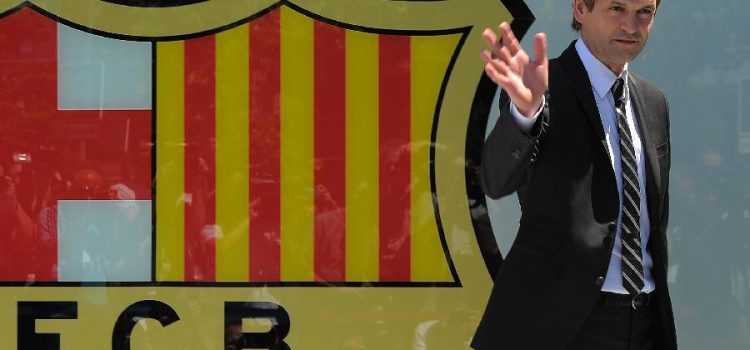The last four or five years at Barcelona saw Pep Guardiola lead his boyhood club to the most successful era of the clubs history. Winning three La liga titles, two Champions Leagues, two Copa Del Rays, two Super Cups and two World Club Cup’s in just four seasons, Guardiola produced a Barcelona team that is considered by many to be the greatest side in history.
Guardiola wanted his team to dominate each game and to impose their personality, by pressuring high up the pitch, being patient in their build up, before finding the gaps as they so elegantly tore teams apart. Guardiola’s Barca was scintillating, it was footballs answer to the orchestra as Xavi, Messi and co conducted the play, it was beautiful and it was above all successful.
Creating such greatness takes its toll however, and four years of intense pressure and hard work resulted in Guardiola calling time on his managerial position at the Nou Camp last season. Guardiola felt it would be more beneficial for the club, the players and himself if a new face led Barcelona into the next wave. Up step Tito Vilanova.
Spanish football writer Guilleme Ballague referred to last Sundays Classico as the funeral of Pep Guardiolas Barcelona in his soccer blog. This wasn’t to sound down beat and depressed, nor was it to mourn or long for Pep to be on the touchline, but rather to outline a new age and new style of football for FC Barcelona, as Guardiolas former assistant Tito Vilanova looks to build on the clubs recent achievements.
While Guardiola’s and the ‘Cruyff’ football philosophy will always be the foundations of FC Barcelona, it is important that the team continues to adapt in order to maintain it’s superiority in world football.
Tito Vilanova knows exactly how Pep Guardiola and the current set of players work, but so far this season we can see that he is focused on further improving Barca in order to stay ahead of the pressures of a Real Madrid team that continues to improve and grow accustomed to Barca’s style of play. He is also focused on how he can best deal with the growing injury list at the Nou Camp.
For all of the compliments Pep Guardiola’s Barca team received for sticking to their footballing principles and identity, there were also those football blogs that criticised their one-dimensional approach, which on a few occasions did see them slip up. Most notably against Chelsea and Inter Milan in the Champions League semi finals.
Having watched Barca so far this season, now it seems that Vilanova realises that his team need to be slightly more conventional in their play, to be more direct, to play more long balls, and to be more defensively disciplined rather than applying intense pressure high up the pitch. Now if you are like me, then that might not be what you want to hear.
The patience and pure football is why I (and many others) love watching Barcelona. I love the fact that they don’t play long balls, that they don’t’ sit back and defend but look to win the ball back high up the pitch. That’s what makes them beautiful is not?! But if you go back to why Guardiola left the club, this era requires even more effort to make the transformations to the team to continue the success, something Guardiola didn’t feel he could commit to, and these are the types of changes that are required to improve.
Let’s not start to think that Barca will be like the Wimbledon of the 90s or even the Real Madrid of the last couple of years. Their tika taka football will stay in tact, Vilanova simply want’s to instill some steel to the team, which is something that hindered them last season.
Balleague referred to the last clasico as Guardiola’s funeral because it was the first time that we have really seen the transitions that Vilanova has been making to his team.
The match wasn’t a typical Clasico. Although there were chances, it wasn’t end-to-end and wide open as we have seen in recent years. It was more tactical, cagey and disciplined. So much so that Dani Alves was replaced by Martin Montoya after some unsettling moments from the Brazilian. It was a great game, but a clear illustration that Barca are adapting and facing up to life without Guardiola.
It is arguably one of the most difficult tasks in football… to make the best team in the history even better! But as Vilanova transforms Barca’s footballing philosophy, while at the same time building and maintaining an eight-point gap over Real Madrid, as well as being without any recognised centre backs, it is fair to say that he is doing very well so far.
It will be very interesting to see if his new, more direct and disciplined philosophy, will be accepted by the Barca fans, the board and the players. And of course even more interesting to see if it will reap the same rewards that the Barca fans have become accustomed to over the last ten years.
Written by Luke Malcher
Follow him on Twitter @lukemalcher
Please like O-Posts on Facebook
You can follow O-Posts on Twitter @OPosts

